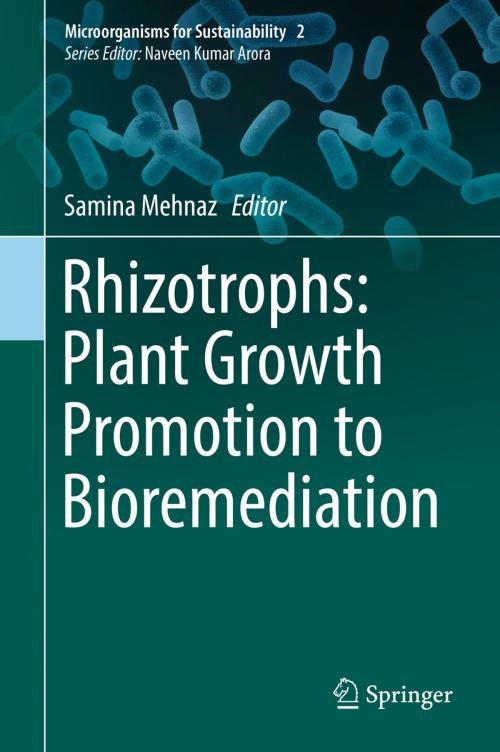Rhizotrophs: Plant Growth Promotion to Bioremediation
Nonfiction, Science & Nature, Science, Biological Sciences, Microbiology, Technology, Agriculture & Animal Husbandry| Author: | ISBN: | 9789811048623 | |
| Publisher: | Springer Singapore | Publication: | July 31, 2017 |
| Imprint: | Springer | Language: | English |
| Author: | |
| ISBN: | 9789811048623 |
| Publisher: | Springer Singapore |
| Publication: | July 31, 2017 |
| Imprint: | Springer |
| Language: | English |
This book describes the contributions of rhizotrophs – microbes associated with the parts of plants below ground – in sustainable agriculture. It covers a broad range of aspects, from plant growth promotion to bioremediation. It highlights the role of bacteria, actinomycetes, mycorrhizal fungi, and most interestingly protists, in the sustainability of agriculture. Further, it addresses in detail the involvement of quorum sensing signals, and the role of hydrolytic enzymes and bacteriocin in combating the phytopathogen.
The book sheds light on the interaction of rhizotrophs in rhizosphere and how these microbes support plants growing under adverse stress conditions such as saline, drought or heavy-metals contamination. Challenges faced in the field application of these microbes, strategies for modifying the rhizosphere to improve crop yield, and the latest advances in rhizobial bioformulations are also discussed. Overall, the book provides comprehensive information on how various microbes can be used to improve the sustainability of agriculture without disturbing the environment.
This book describes the contributions of rhizotrophs – microbes associated with the parts of plants below ground – in sustainable agriculture. It covers a broad range of aspects, from plant growth promotion to bioremediation. It highlights the role of bacteria, actinomycetes, mycorrhizal fungi, and most interestingly protists, in the sustainability of agriculture. Further, it addresses in detail the involvement of quorum sensing signals, and the role of hydrolytic enzymes and bacteriocin in combating the phytopathogen.
The book sheds light on the interaction of rhizotrophs in rhizosphere and how these microbes support plants growing under adverse stress conditions such as saline, drought or heavy-metals contamination. Challenges faced in the field application of these microbes, strategies for modifying the rhizosphere to improve crop yield, and the latest advances in rhizobial bioformulations are also discussed. Overall, the book provides comprehensive information on how various microbes can be used to improve the sustainability of agriculture without disturbing the environment.















